
Mnesampela lenaea, the rippled gum moth, is a moth of the family Geometridae first described by Edward Meyrick in 1892. It is found in Australia.
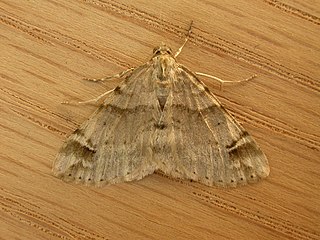
Syneora hemeropa, the ring-tipped bark moth, is a moth of the family Geometridae first described by Edward Meyrick in 1892. It is found in Tasmania, Australia.

Anachloris is a genus of moths in the family Geometridae, with three species, found in Australia, New Zealand and Papua New Guinea.

Casbia is a genus of moths in the family Geometridae erected by Francis Walker in 1866.
Chaetolopha is a genus of moths in the family Geometridae. Most species are endemic to Australia. A number of species previously assigned to this genus, were reassigned to the new genus Parachaetolopha in 2002.
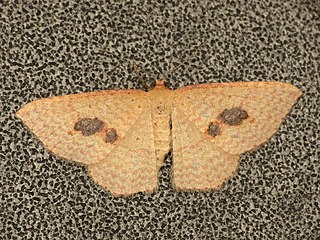
Epicyme is a monotypic moth genus in the family Geometridae described by Edward Meyrick in 1885. Its only species, Epicyme rubropunctaria, the red-spotted delicate, described by Edward Doubleday in 1843, is found in New Zealand, the Australian Capital Territory, Tasmania and Victoria.

Epyaxa is a genus of moths in the family Geometridae erected by Edward Meyrick in 1883.

Gastrinodes is a genus of moths in the family Geometridae erected by William Warren in 1898. Its species occur in Australia. Its type species is G. bitaeniaria, originally described as Geometra bitaeniaria.
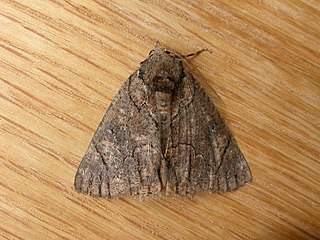
Heliomystis is a monotypic moth genus in the family Geometridae. Its only species, Heliomystis electrica, the electric moth, is found in the southern half of Australia. Both the genus and species were first described by Edward Meyrick in 1888.
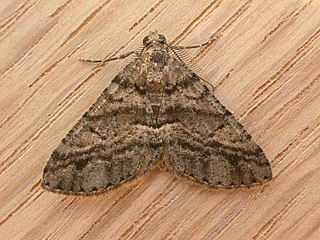
Lipogya is a genus of moths in the family Geometridae described by Warren in 1898. All are from Australia.

Nearcha is a genus of moths in the family Geometridae described by Edward Guest in 1887. All species in the genus are known from Australia.
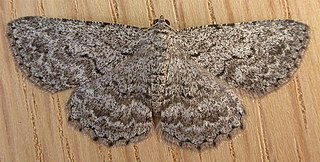
Psilosticha is a genus of moths in the family Geometridae first described by Edward Meyrick in 1892.

Rhodometra is a genus of moths in the family Geometridae erected by Edward Meyrick in 1892.

Syneora is a genus of moths in the family Geometridae erected by Alfred Jefferis Turner in 1917. All the species are found in Australia.

Sterrhinae is a large subfamily of geometer moths with some 3,000 described species, with more than half belonging to the taxonomically difficult, very diverse genera, Idaea and Scopula. This subfamily was described by Edward Meyrick in 1892. They are the most diverse in the tropics with the number of species decreasing with increasing latitude and elevation.

Scopulini is a tribe of the geometer moth family (Geometridae), with about 900 species in seven genera. The tribe was described by Philogène Auguste Joseph Duponchel in 1845.
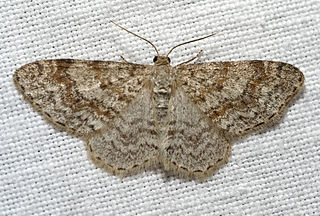
Asthenini is a tribe of geometer moths under subfamily Larentiinae first described by Warren in 1893. The tribe has been combined with Eupitheciini in the past, most notably by Jeremy Daniel Holloway in his work The Moths of Borneo.
Rhodometrini is a tribe of the geometer moth family (Geometridae) described by Ramón Agenjo Cecilia in 1952. It has about sixteen species in two genera and one genus with a single species tentatively associated with the tribe.

Notoreas isoleuca is a species of moth in the family Geometridae. It is endemic to New Zealand.


















